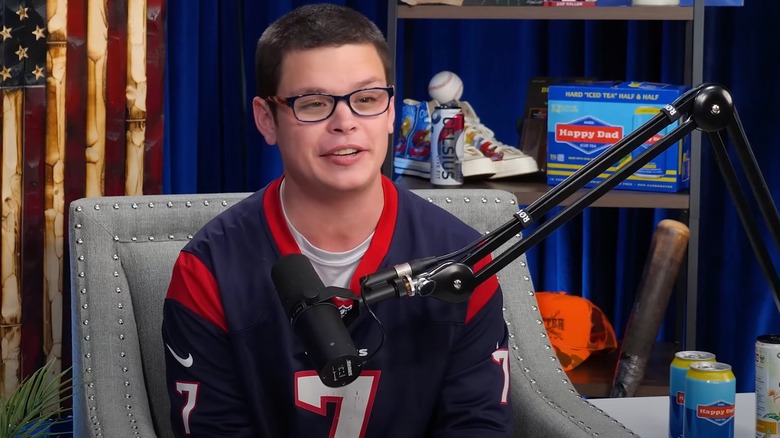Introduction
In recent years, social media platforms and content creation have brought increased visibility to various neurological and mental health conditions. One recurring question among fans of the popular content creator Sketch is: “Does Sketch have Tourette’s?” This article aims to address this question comprehensively, providing insight into Tourette Syndrome (TS), discussing Sketch’s public behavior, and clarifying any misconceptions.
Understanding Tourette Syndrome

Before delving into the specific question of whether Sketch has Tourette’s, it is essential to understand what Tourette Syndrome is. TS is a neurological disorder characterized by repetitive, involuntary movements and vocalizations known as tics. These tics are often sudden and may vary in severity from person to person.
Common Symptoms of Tourette Syndrome
- Motor Tics include involuntary movements such as blinking, shoulder shrugging, or facial grimacing.
- Vocal Tics: These can range from simple sounds like grunts to more complex vocalizations, including words or phrases.
- Coprolalia: A rare symptom involving involuntary swearing or inappropriate remarks, often sensationalized in media.
Tourette Syndrome typically emerges in childhood, with symptoms often peaking during adolescence and decreasing in severity in adulthood. The condition affects people across all demographics and does not indicate a person’s intelligence or character.
Who Is Sketch?
Sketch is a well-known online personality primarily recognized for engaging and humorous gaming content. With millions of followers across platforms, Sketch has established himself as a beloved figure in the digital entertainment world. Fans are drawn to his energetic personality, quick wit, and unique humor. However, Sketch’s public behavior has occasionally sparked speculation about whether he might have Tourette Syndrome.
Does Sketch Have Tourette’s?
The question “Does Sketch have Tourette’s?” appears to stem from observations of his high-energy demeanor and certain behaviors during his videos. Let’s examine the evidence and context surrounding this speculation.
Sketch’s Public Statements
To date, Sketch has not publicly disclosed having Tourette Syndrome or any related condition. At the same time, some fans may interpret specific quirks in his behavior as indicative of TS; avoiding making assumptions about someone’s health without explicit confirmation is essential.
Behaviors Often Misunderstood
Sketch’s dynamic personality, exaggerated expressions, and comedic delivery are key components of his content style. These traits are common among entertainers and are typically performed to captivate an audience. Without a medical diagnosis or confirmation from Sketch himself, it is impossible to attribute these behaviors to Tourette Syndrome.
The Impact of Speculation on Public Figures
Speculating about a public figure’s health or neurological condition can have unintended consequences. It may:
- Reinforce Stereotypes: Misconceptions about Tourette Syndrome could be perpetuated, leading to a more significant misunderstanding of the condition.
- Invade Privacy: Like anyone else, public figures have the right to privacy regarding their health.
- Spread Misinformation: Unverified claims about a person’s health can contribute to the spread of inaccurate information.

Promoting Awareness and Understanding of Tourette Syndrome
Whether Sketch has it or not, this question provides an opportunity to raise awareness about the condition. Educating ourselves and others can foster greater empathy and understanding for those living with TS.
Supporting Individuals with Tourette Syndrome
- Avoid Stereotyping: Recognize that TS manifests differently in each individual.
- Be Patient and Respectful: Tics are involuntary and not performed intentionally.
- Encourage Inclusivity: Create environments where individuals with TS feel accepted and supported.
Conclusion: Addressing “Does Sketch Have Tourette’s?”
In conclusion, there is no concrete evidence to confirm that Sketch has this Syndrome. While his animated personality has made some fans wonder about the possibility, it is crucial to respect his privacy and avoid making unfounded assumptions. Instead, let’s use this curiosity to learn about this Syndrome, challenge stereotypes, and promote acceptance.
By focusing on awareness and empathy, we can create a more inclusive society where individuals with neurological conditions are understood and supported. And as for Sketch, let’s continue to appreciate the entertainment he provides, regardless of any unanswered questions about his health.








Leave feedback about this